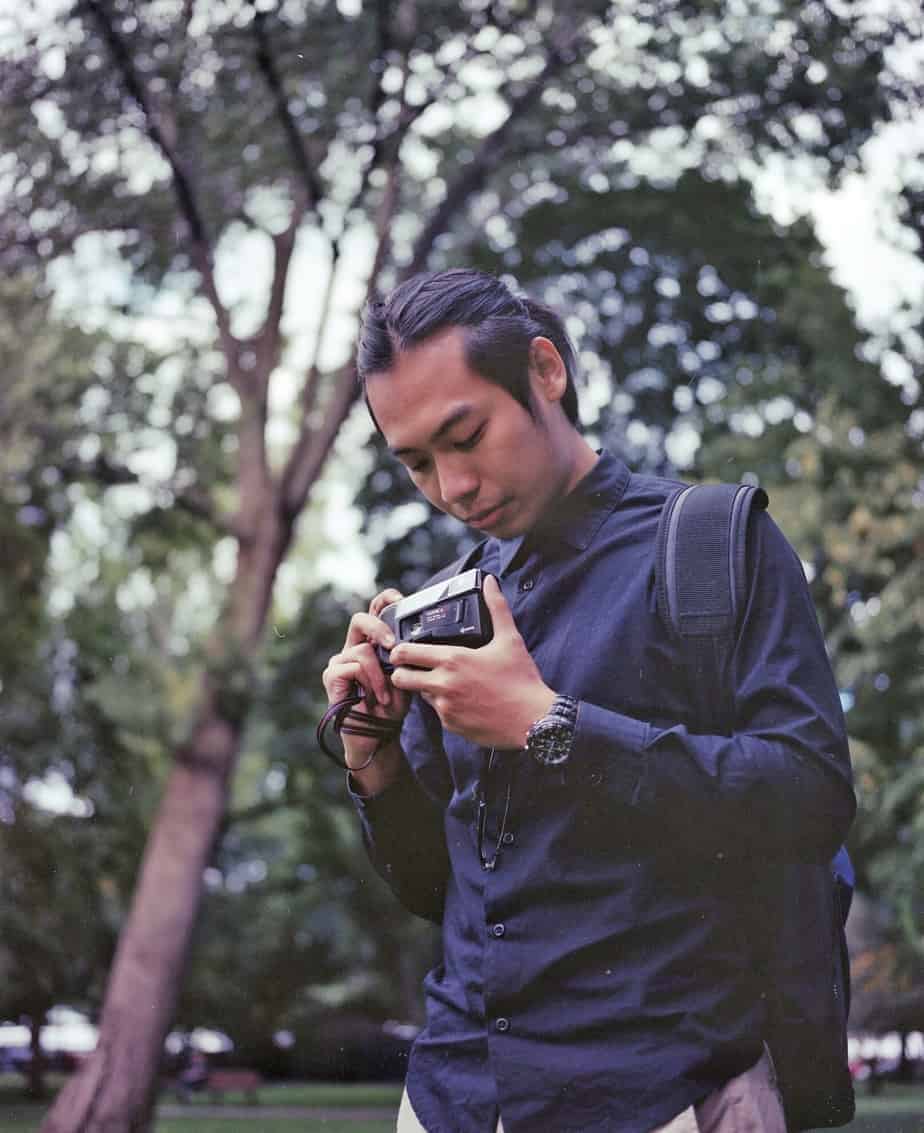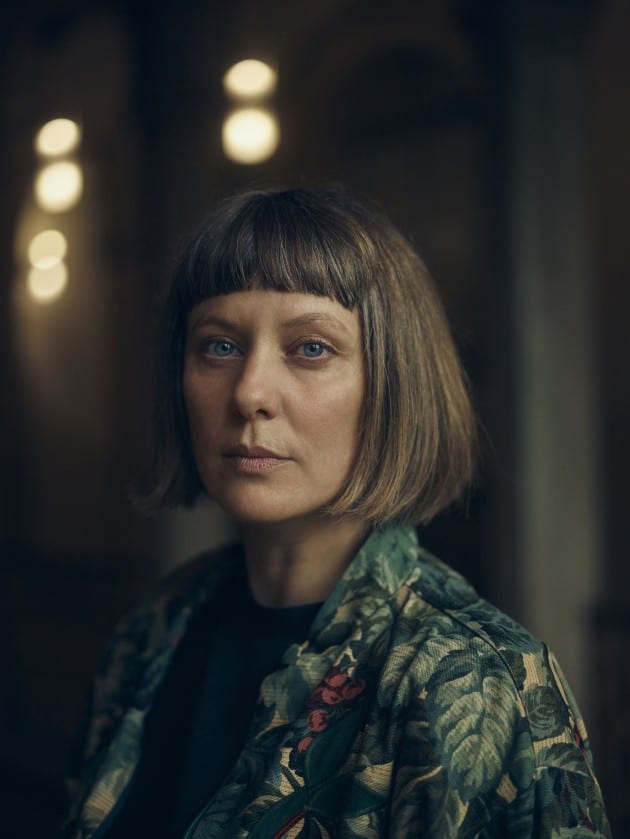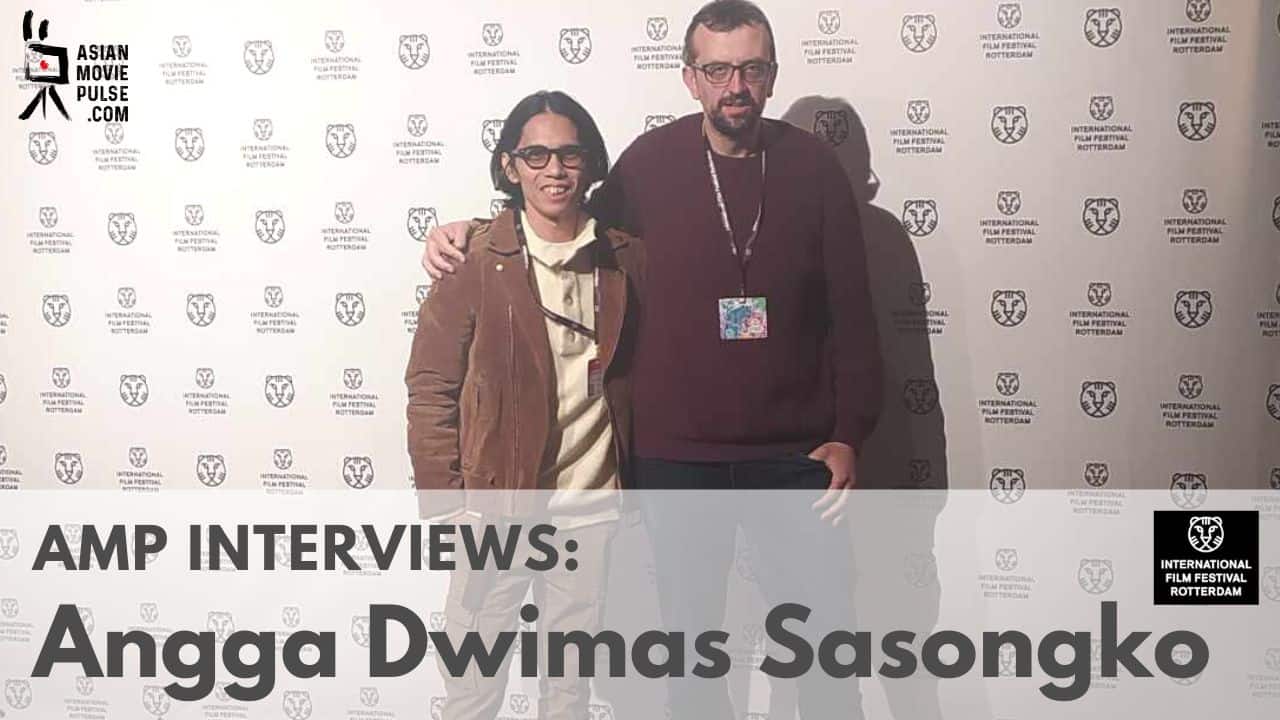Born and raised in Guangzhou, Chen Zhilin (Chilam) is a director, writer and cinematographer. He recently graduated from Emerson College with an MFA degree in Film & Media Art. His filmography includes short films “Master Choi” (2016), “Kidnapee” (2017) and the experimental “Self” (2018). His debut feature, “The Little Shrimp” completed in spring 2019, is a charming a subtle coming of age tale.
On the occasion of “The Little Shrimp“ opening the Mulan International Film Festival 2019, we speak with him about
opportunities, fishing for talents in Hong Kong, the contradictions within the fast-changing Chinese families and the magic of being chosen to open Mulan.

Your movie feels very personal and intimate. Was it really inspired by your own experience as a student away from home?
I would like to say no. Nothing comes from my real life, nothing.
“The Little Shrimp” is quite sophisticated as a graduation work. In which way the Emerson College helped you with the production of the film?
Emerson College is the No.1 LGBTQ+ friendly school in America. Many students here have strong characteristics and desire to express themselves, which helped me to dig down to myself of my identity.
Professors here are always willing to hear a different voice and try their best to discover the good things from different students. As an MFA student in Film & Media Art Program, we don't have any direction but there are a lot of different classes I can choose. It fits me really well because I majored in computer science when I was in college. It is different from what I was used to.
Can you tell us something about the casting process, and especially about finding young actors Andy Choi and Isabelle Chan?
As for casting, there was one fact that I knew before coming back to Guangzhou – Amateur or even professional actors in Guangzhou wouldn't fit in my movie because they mainly act for television drama and commercials. Their acting style conflicted with the acting style that was needed. What's worse, most of them are pricy. Therefore, I started to find some resources on Facebook from Hong Kong where they have a much bigger film industry. And I got lucky again. There are a few Facebook public groups that I joined and posted my casting notice on. Soon after that, I gradually received over 20 emails and had the chance to talk to a local producer in Hong Kong. It turns out that casting is super informal for young professional actors and part-time older actors in Hong Kong because they look for work on Facebook groups. The acting pool is larger while the fees they charge are lower. After that, I went to Hong Kong with two of my friends and managed to cast all my main characters in one day.
I will say I am really lucky to find Andy Choi and Isabelle Chan. As we were talking, I found out that we had many things in common. Both of them have siblings and have their difficulties in communication with their family. I knew they were the right choice after I met them.

“The Little Shrimp” has the distinctive flavor of the slow cinema and is elegantly framed. What directors have influenced your professional development?
All the Taiwan New Wave directors influenced me in a certain way. Edward Yang is the most important director for me when I decided to change my major to film. His films taught me how to release my emotions especially anger, in my heart. His opinion in his movies is so strong that it keeps pushing me to find an answer. What is right and what is wrong in my life, although I know that the world is always ambiguous. However, Tsai Ming-liang forced me to slow down and appreciate all the details in my life. Hou Hsiao-hsien is like a lighthouse, shining far away.
I was very impressed by the character of Yam, the elder sister, and the way she succeeds in delivering a strong message with just a few lines. Did you have a specific person in mind while writing the script? Are young women in China still on the slower lane?
I am a bad liar. It happens in my life, and I am trying to find a solution by expressing my emotion in my film. I don't know. I am neither a statistician nor a female. But from my point of view, I will say it is a common situation in our generation. Our pacing is slowing down compared to our parents. As the economy grows really fast in China, our lives are getting better and we don't need to worry about how to survive. However, the habits and ways of living stay in our parents' mind, which is the origin of all the contradiction. The way our parents teach us is how to fit and survive in this society. But what if we don't have to? What we truly want? No one has the answer.
In “The Little Shrimp”, Cheng is passive and pushed by the environment. His friend Rong (Fatso), also shares a similar situation. Third Uncle's son doesn't talk much in the film. What we only know is he loves playing computer games. Yam is the same, she just doesn't know what she can do as well. Locking herself at home is her way to protect herself. Us, as males, is to make us as numb as possible to the environment to protect ourselves.
Can you talk a bit about the theme of death and the superstition that runs in the background of your movie?
In my family, I experienced and learned about ritual and taboo in every traditional festival since I was a child. Those are the things that I don't understand but follow. But as I grow up, I gradually realize that it is an informal religion. It mixes with Dao and Buddhism without following their rules. And that's the way how we relieve the fear of death.

It was good to hear the dialogues are in Cantonese. Did you think, at any point, that filming in Cantonese could have been an obstacle for your work's diffusion?
I don't think so. There is a tendency in China that more and more young directors are willing to shoot their films in their hometown with dialect, like Bi Gan. And people are more and more willing to hear a unique voice from an individual.
The biggest obstacle is not about language, but the type of art-house films have a smaller audience in China, compared to western countries.
What was your reaction when you learned “The Little Shrimp” was going to open the Mulan International Film Festival and what does this mean to you?
It surprised and confused me when I was informed. I have less experience compared to all the other feature films directors. Furthermore, my film is barely a feature, how can it possible to be the open night film?
It is still like a dream to me, a dream that I will never forget. This is the beginning of my career as a director.















